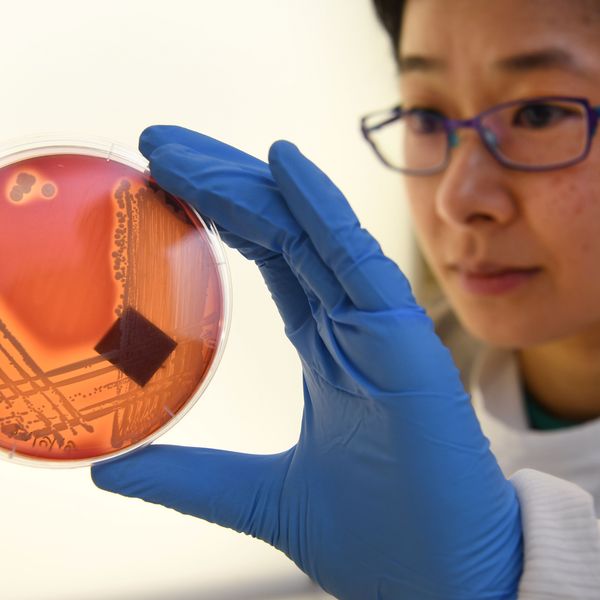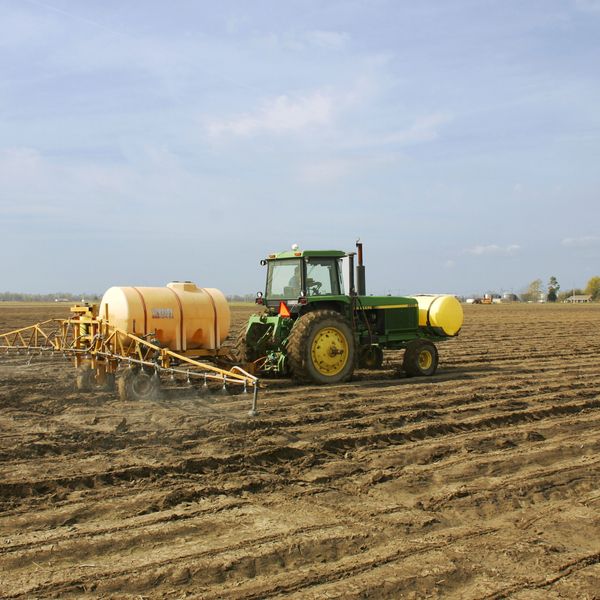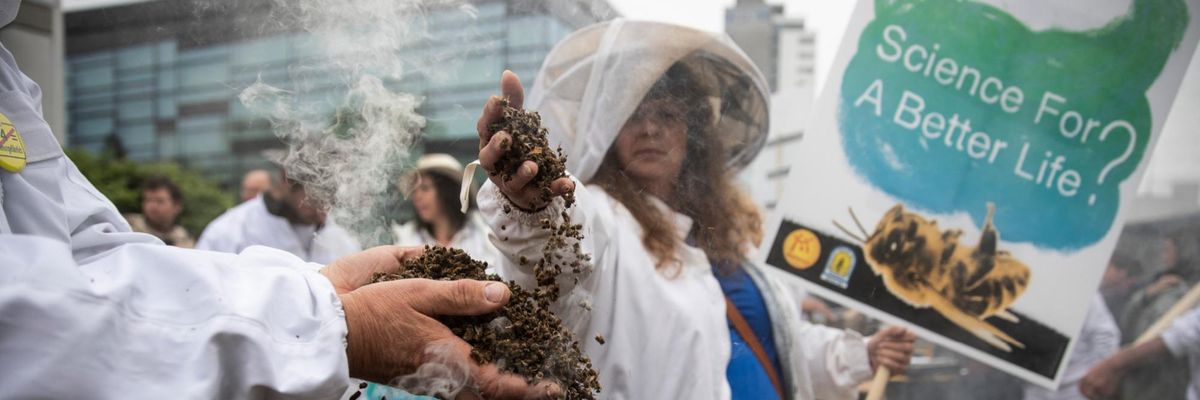A global coalition of food justice advocates on Friday urged the United Nations Food and Agriculture Organization to sever ties with CropLife International, a trade association representing agrochemical corporations.
In a letter addressed to FAO Director-General Qu Dongyu and attached to a petition signed by more than 187,300 people from 107 countries, nearly a dozen groups wrote that "CropLife's sole purpose is to advocate for use of its members' products."
Those products, says the letter, "are both antiquated chemical solutions and techno-fixes (genetically modified seeds) that lock farmers into ever-escalating use of pesticides, in conjunction with proprietary seeds that have systematically undermined the rights and welfare of the majority of the world's food producers."
"A partnership with CropLife represents a perpetuation of this deeply unjust and unsustainable system," said the coalition, whose members include the petition organizers--Pesticide Action Network (PAN) International, the Center for International Environmental Law, and Friends of the Earth--plus several other groups fighting for food sovereignty, trade justice, and workers' rights.
"To strengthen official ties with CropLife," the groups wrote Friday, "directly undermines FAO's priority of minimizing the harms of chemical pesticide use worldwide."
"Reliance on hazardous pesticides undermines the rights to adequate food and to health for present and future generations," said the coalition. "More than one-third of CropLife member company sales are Highly Hazardous Pesticides that pose the highest levels of risk to health or the environment."
The letter continues:
Recent estimates show that there are 385 million cases of acute pesticide poisonings each year, up from an estimated 25 million cases in 1990. This means that about 44% of farmers and agricultural workers around the world are poisoned each year by an industry dominated by CropLife members. Pesticide products produced by CropLife member companies decimate pollinator populations and are wreaking havoc on biodiversity and already fragile ecosystems.
This is not the first time the U.N. food agency has come under fire for its alliance with CropLife. Last November, more than 350 civil society organizations from 63 countries, along with more than 250 scientists and academics, sent letters to Qu expressing concerns about the FAO's willingness to collaborate with a trade association whose raison d'etre is to market pesticides sold by companies like Bayer and Syngenta.
"We strongly urge you to... discontinue this deeply inappropriate alliance with an industry that places the interests of profit above that of public welfare and the planet."
In a statement released Friday, Simone Adler, organizing co-director at PAN North America, called it "completely inappropriate for FAO to partner with the world's largest agrochemical companies."
Adler, co-coordinator of the PAN International campaign to put an end to the cozy relationship between FAO and CropLife, stressed that "this partnership with CropLife is in direct conflict with FAO's mandate as a U.N. institution to fulfill human rights to health, adequate food, clean water and environment, and safe working conditions."
"A global movement of hundreds of thousands of farmers, fisherfolk, agricultural workers, Indigenous peoples, and activists is urging FAO to halt this partnership with CropLife, immediately," said Adler. "This toxic alliance facilitates the corporate capture of our global food systems, and directly undermines FAO's own Code of Conduct on Pesticide Management."
"Now that the director-general has the clear demands of nearly 200,000 people in front of him," Adler said, alluding to Friday's petition delivery, "we hope he will respond appropriately by putting the brakes on this partnership, and prioritizing instead the well-being of farmers, workers and food producers, and the planet."
The coalition told Qu that collaborating with CropLife "undercuts your agency's critical--and urgently needed--support for agroecology, which FAO itself notes 'can support food production and food security and nutrition while restoring the ecosystem services and biodiversity that are essential for sustainable agriculture.'"
"We strongly urge you to continue to support the transition to people-led agroecology," the groups added, "and discontinue this deeply inappropriate alliance with an industry that places the interests of profit above that of public welfare and the planet."



